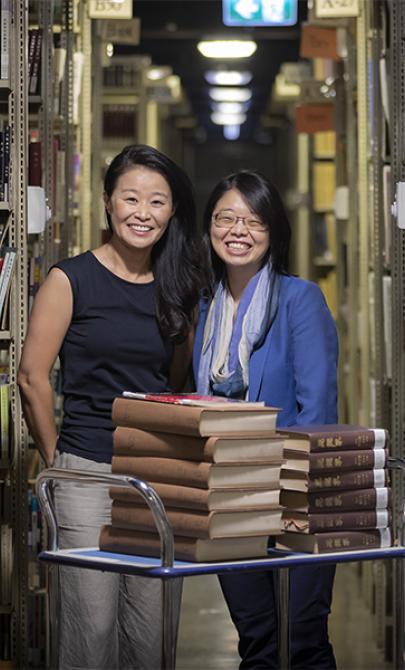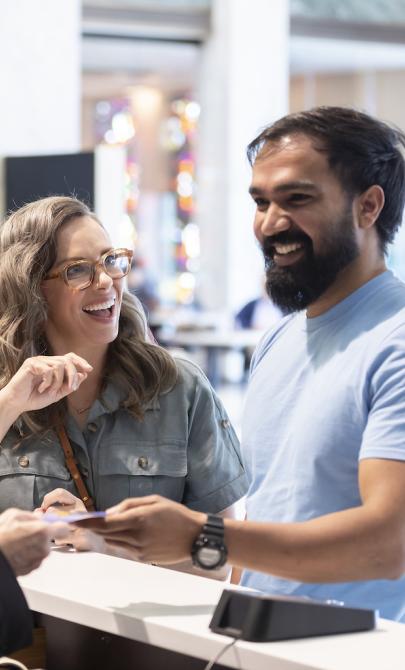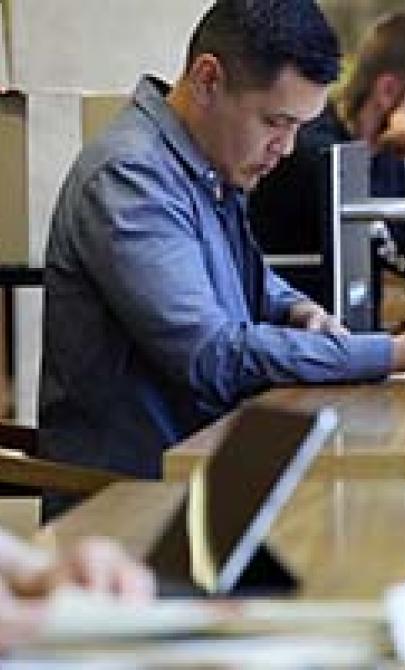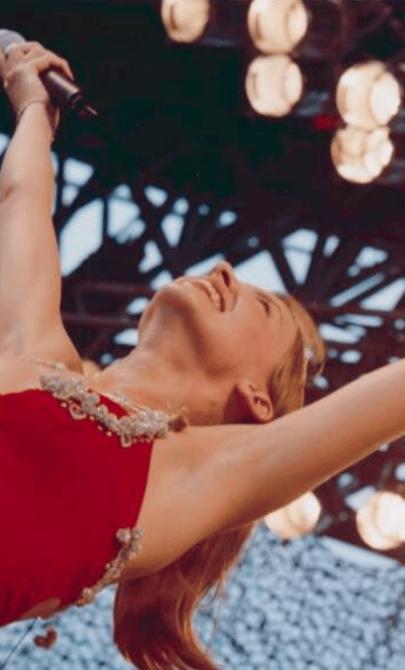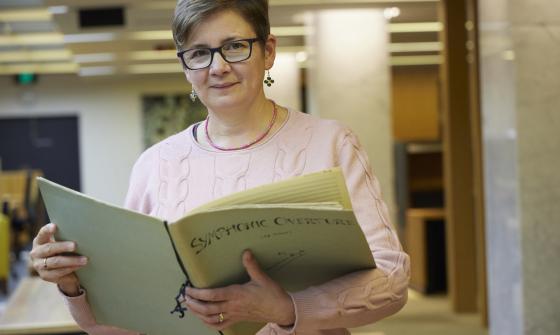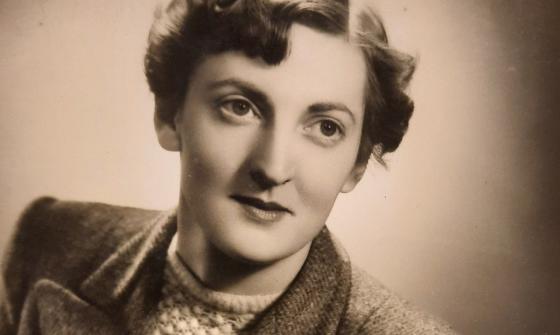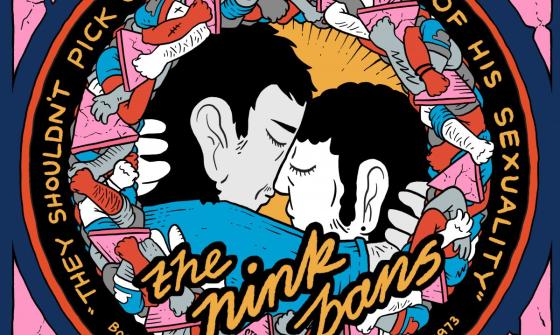Creative Arts Fellowship
Applications for the 2026 Creative Arts Fellowship have now closed.
About the Creative Arts Fellowship program
Creative Arts Fellowships support the development of creative works inspired by the National Library’s unique, rare or comprehensive collections.
Works can be at any stage of development but must require access to the collections to progress or be completed. The final work, which does not have to be finished within the residency period, should showcase the collections in unique or interesting ways, and acknowledge their contribution.
The collections can be used to:
- reimagine or repurpose existing materials
- research original sources that underpin or inspire new work
- arrange, adapt or transform collection content for another purpose
- develop an innovative artistic concept.
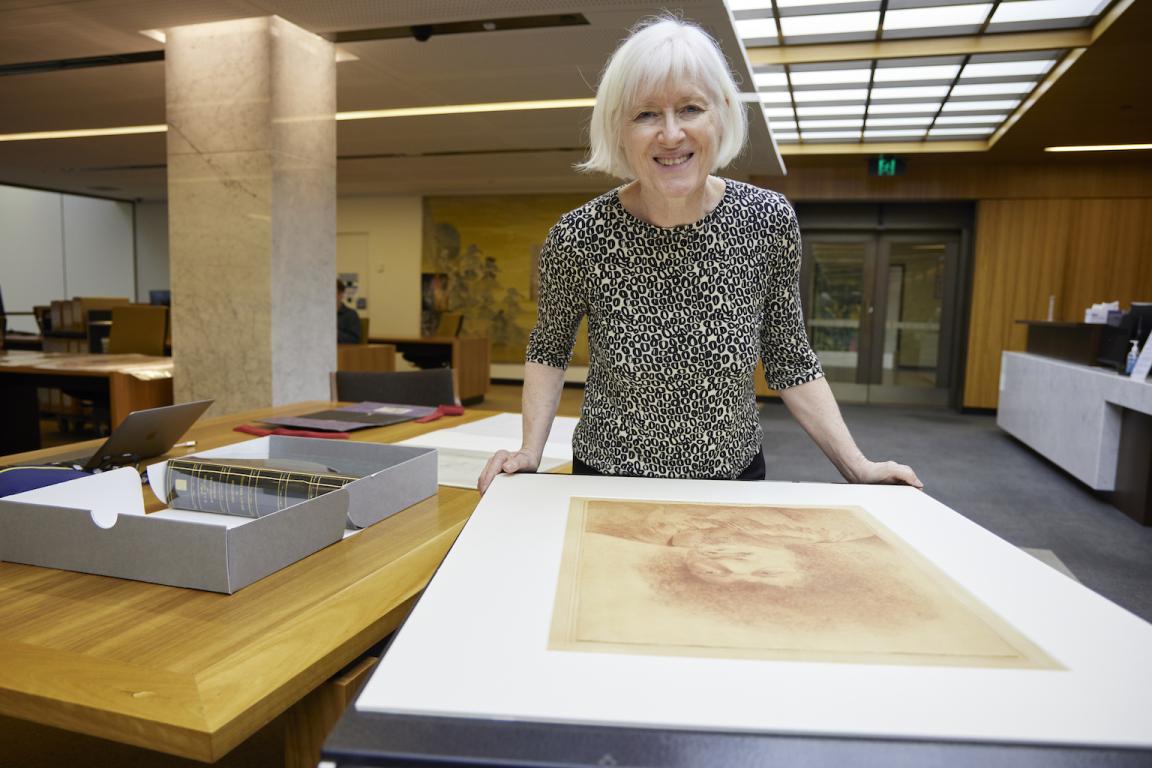
Dr Christina Thompson with Willaim Hodges, Otoo, King of Otaheite [i.e. Tahiti], 1773, nla.gov.au/nla.obj-134429610
Dr Christina Thompson with Willaim Hodges, Otoo, King of Otaheite [i.e. Tahiti], 1773, nla.gov.au/nla.obj-134429610
Types of Fellowships
In 2026, one Creative Arts Fellowship is offered.
- Fellowship in Australian writing, supported by the Ray Mathew and Eva Kollsman Trust: Using our collections, writers working in any literary genre can progress a new creative work. This may include writing for performance, poetry, fiction, creative non-fiction (non-fiction which is sufficiently innovative, writerly or reflective), personal essays or graphic novels, but does not include works of general non-fiction, such as history or biography. See examples of creative non-fiction.
What Fellows receive
- $35,000 to support a sustained research residency at the National Library. Funding is based on 12 weeks at the National Library. Fellows have 24 months to complete their research
- Supported access to Library’s collections
- Use of the Library’s Petherick Reading Room
- Increased borrowing privileges to maximise access to the collection
- A Copies Direct allowance of $1,500 to request high resolution digital copies of collection materials for publication or other public uses (subject to copyright, licensing and access conditions)
How to apply
Before you start your application, make sure you understand the eligibility requirements for you and your project, how to apply and what your application needs to include.
Applications are submitted through the SmartyGrants online platform.
- You must apply through SmartyGrants, via the ‘Apply now’ button on this page. We don’t accept hardcopy or offline applications.
- You can preview the form before starting an application. Once started, please save your form regularly. You can save and edit the application, but you can’t make changes after you’ve submitted.
- If you have difficulties with SmartyGrants, contact us at fellowships@nla.gov.au.
We handle your application and personal information as described in our privacy policy.
No. We do not accept late applications or support material. Make sure you check the closing dates for applications. You should allow for any time difference, and internet connection or submission issues.
To be eligible to apply for a Creative Arts Fellowship, you must be:
- An individual creative writer practising in a professional forum, i.e. your writing is available and subject to public and peer review
- An Australian Citizen or permanent resident.
Potential applicants should consider carefully whether their work will be competitive at the national level.
You must be able to undertake your residency in Canberra between 19 January 2026 and 10 December 2027.
You cannot apply if:
- you are currently undertaking PhD studies. Your PhD must be conferred before 5 May 2025 to be eligible to apply. Proof of completion may be requested
- you have received a research Fellowship, Scholarship or Grant from the National Library of Australia within the last five years, i.e. funding was received in one of the Library’s 2021-2025 program rounds
- your research supports writing a work of non-fiction, these projects are supported by the National Library Fellowships program
- you are not an Australian citizen or permanent resident.
Yes. Fellowships are provided to enable you to have the time to undertake deep research into the Library’s collections.
Your application should demonstrate knowledge of the Library’s collections that are relevant to your project.
Before you begin your application, research the Library's collections to identify the primary collections you intend to use. This can be done using the Library catalogue. The Library’s Ask a Librarian service may also provide some guidance to finding material on the catalogue if required. While your list is unlikely to be definitive at the time of application, applicants who do not show how the Library’s collections will support their proposed research will not be successful.
Your application should highlight how the Library's collections can contribute to your project outcomes, with a focus on items accessible only onsite. Applications only listing collection items that are published works held by multiple libraries, or collection items that are digitised and readily available online, are not likely to be successful.
Applicants should demonstrate awareness of any access, Indigenous Cultural and Intellectual Property or rights issues that may apply to identified collection items. Information about access conditions can be found in the catalogue record, and the Ask a Librarian service can be used if further assistance is required.
Your application should demonstrate the following.
- an innovative artistic concept relative to the genre you are working in, including the application of the National Library’s Indigenous Cultural and Intellectural Property (ICIP) protocols and ethical research principles where appropriate.
- evidence of a professional writing practice
- a clear explanation of both research and creative goals and expected progress during the Fellowship, including a timeline of when you plan to be working onsite at the National Library
- the relevance and value of the National Library’s unique, rare or comprehensive collections to support the research outcomes, along with an awareness of any access permissions that may be required for collection material
- the project’s potential to be communicated to a general audience, as well as the potential for increasing public knowledge of the National Library’s collections
Your application will need to include:
- a short, biographical statement
- a creative practice CV (maximum two A4 pages)
- proposed start and end dates for your research at the National Library. Residencies may be scheduled between 19 January 2026 and 10 December 2027, for a period of time decided by you, based on the Fellowship funding offered and your research needs. Final dates will be negotiated and confirmed with successful applicants
- a project proposal, expected outcomes and research plan with timeline
- a list of the collection materials you wish to access, provided in the format requested
- contact details of referees who can speak to your area of research or creative practice and put the proposed project into context. Applicants are responsible for providing a copy of their application to their referees. These can be downloaded or printed from SmartyGrants. Referees of shortlisted applicants will be contacted directly by the Library.
Your application should demonstrate awareness of Indigenous Cultural and Intellectual Property (ICIP) and protocols, and demonstrate how you will implement the National Library’s ICIP protocols in your research. If you are planning to use collection material by or about Australian First Nations people, or your project has an Australian First Nations focus, a letter of support from appropriate First Nations organisations, communities and Elders would strengthen your application.
Information about access conditions, including ICIP, can be found in the catalogue record, and the Ask a Librarian service can be used if further assistance is required.
You should only provide supporting material if it’s requested in the application form and is relevant to your project.
- If the project is in an early development or conceptual stage, examples of previous work that shows your ability to achieve your outcomes can be used.
- The application form limits individual file attachments to 25MB. Label attachments clearly, for example, ‘CV’ not ‘Document 1’.
- Upload audio and/or video files to a file streaming site such as Vimeo or YouTube. Do not use Dropbox.
- If you have a website or material online, provide the link to the material you want viewed. The relevant page/s must remain static until the assessment process is complete.
- Support material must be accessible to the assessors. We recommend you prepare and attach it in advance of the closing date.
Applications are assessed by the National Library’s Fellowships Advisory Committee (FAC). The FAC is chaired by the Library’s Director-General (or their delegate) and a representative from each of the following organisations.
- Academy of the Humanities
- Academy of the Social Sciences in Australia
- Asian Studies Association of Australia
- Australian Academy of Science
- Australian Society of Authors
- Independent Scholars Association of Australia
- National Library of Australia’s Aboriginal and Torres Strait Islander Research and Education Reference Group
All applications are assessed based on the selection criteria as specified above. The FAC may also seek independent expert advice if required.
National Library staff read and shortlist all applications against the eligibility criteria. The Fellowships Advisory Committee is then provided with the shortlisted applications as well as a complete list of all applications. Committee members can call into consideration any applications that are not included on the initial shortlist.
Successful applicants will receive a Letter of Offer along with a Conditions of Appointment agreement that must be signed and returned. These documents outline the terms and conditions under which the Fellowship will proceed.
Fellows are required to:
- give one public presentation, which may be live-streamed or pre-recorded at the discretion of the Library and in consultation with the Fellow, that highlights the work undertaken during the Fellowship and research-in-progress
- acknowledge the support of the National Library and the Fellowship donors in forums, presentations and publications resulting from the Fellowship
- assist the Library to promote the Fellowship through media and public communications, including through contributions to social media
- provide a report within one month of the agreed end date of their Fellowship outlining their experience, which may be used by the Library to review, report on, and promote the Fellowships
- support the Library's donor relations activities during the Fellowship.
The period of Fellowship research may lead to longer-term outcomes, rather than immediate publication or public outcomes. The Library does not expect Fellows to compete a body of work during the residency. Fellows are encouraged to inform the Library of any research outcomes of the residency, and deposit material in the Library’s collection if appropriate.
Funding will be paid directly to you for the purposes of supporting your Fellowship. Payments are made in at least two instalments over the period of your residency at the National Library.
Funding will not be paid in advance of your arrival in Canberra. The first payment will be made during the first week of your residency. Payment of the second and subsequent instalments will be subject to the timing of your residency.
Any arrangements between you and your employer are your responsibility. The Library will not make payments to your employer.
As Fellowship funding is likely to have tax implications, it is recommended Fellows seek professional financial advice which considers your personal circumstances.
You are responsible for clearing copyright of collection materials used if applicable and acknowledge and cite source materials appropriately.
All intellectual property rights (including Indigenous Cultural and Intellectual property rights and copyright) in any work you undertake during a residency will vest in you on its creation.
At the start of a residency, successful applicants will meet with the Library’s Rights Management team who can provide advice on many of these matters.
We will advise you of the outcome of your application by mid-December 2025.
If you are successful, you will receive a Letter of Offer, and your name will be published on the National Library’s website. Unsuccessful applicants will be notified by email and can seek feedback by contacting us.
Meet our Fellows
Dr Julie Gough
Dr. Julie Gough will create new artworks inspired by the National Library's collection, examining the impact of British colonisation on Tasmanian Aboriginal people from 1800 to 1850. Her work will also include an online resource mapping historical materials relevant to her research.
Mx Scott-Patrick Mitchell
Scott-Patrick Mitchell will develop a poetry collection, RISE RALLY REST, exploring queer activism, identity, and history in Australia from the 1970s to the 1990s. Their work will weave personal and community stories, honouring collective loss and celebrating resilience.
